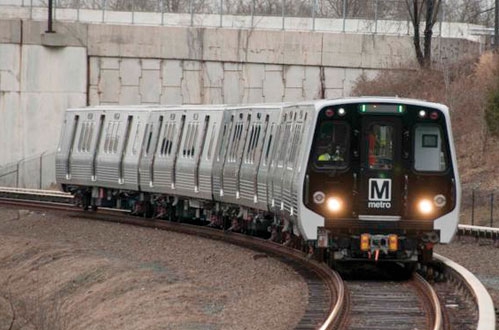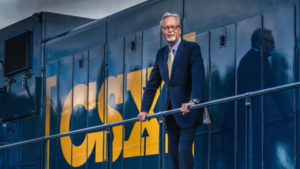WMATA Safety Commission Addresses Safety Issues, 7000 Series Railcars
Written by Kyra Senese, Managing Editor
The Washington Metrorail Safety Commission discussed several safety investigations at its March 7 Public Meeting of the Commissioners.
Of the 15 investigations discussed at the meeting, 10 were related to evacuations, three were regarding collisions and two were related to derailment incidents. The commission said it continues to identify WMATA’s progress and areas for improvement.
The team is also investigating an event that took place recently related to a 7000 Series railcar that was placed into passenger service despite not meeting WMATA’s safety requirements. The car had not been inspected as required to ensure that it was safe to operate, Mayer said.
WMATA said it continues to inspect all 7000 Series railcars’ back-to-back dimensions and journal bearing gaps on a seven-day cycle in accordance with the Return to Service Plan. However, during the week of Feb. 27, the commission said WMATA personnel placed car 7242 into passenger service despite it not meeting the requirements of the plan.
“Regarding the 7000 Series railcars, our team continues our systematic, data-driven approach,” said David Mayer, WMSC’s CEO. “We continue our regular communication with [WMATA] and our review of data.”
The commission said this includes data from current operations, as well as the information that has continued to be available to WMATA through the investigation into derailments that took place on Oct. 12, 2021. The NTSB also recently made related investigation information public.
“As the materials included in that docket demonstrate, the investigation is ongoing,” Mayer said. “They also demonstrate that there are likely to be multiple contributing factors to wheel migration on WMATA railcar axles.”
WMATA announced plans publicly to consider a change to address safety issues that were not identified during the initial 7000 Series design process. The potential change in wheelset assembly requirements would better align the cars with industry norms, the commission said.
This includes engineering analysis and review of changes to wheelset assembly to ensure that all elements of the vehicle and other WMATA systems such as track can handle the changes.
The plan also entails the review and implementation of other safety improvements based on analysis and study planned for the coming months, the commission said.
The commission is also continuing to monitor WMATA’s staffing, noting that after some past progress, the staffing level has slipped.
“We are concerned about the negative effect this could have on the safety of operations, and have communicated this concern to multiple levels of the WMATA organization for an extended period,” Mayer said.
Given the training required, bringing new controllers up to speed takes approximately nine months, the commission said.
Regarding incidents under investigation with the commission, the group discussed several safety concerns.
The commission also offered condolences to the family of a person who died after being dragged by a train at Dunn Loring Station on Feb. 15. The investigation into the incident is ongoing, Mayer said.
The commission’s investigations team is also working with WMATA to examine other recent events such as misrouted trains and station evacuations.
The WMSC notified WMATA of improper train movement during a smoke event near Shaw-Howard University Station on Feb. 9. The event remains under investigation.
As part of the commission’s oversight of WMATA’s emergency preparedness and other operational elements of WMATA, the team observed WMATA’s emergency exercise at Wheaton Station on Feb. 26.
“I want to thank our team for their continued, dedicated work on behalf of the region to ensure that WMATA carries out its safety commitments, and that WMATA follows through on its commitment to continuously improve safety,” said David Mayer, WMSC’s CEO.
The reports of each investigation adopted March 7 are available on the commission’s website. The commission oversees safety and enforcement along WMATA’s system in D.C., Maryland and Virginia.





